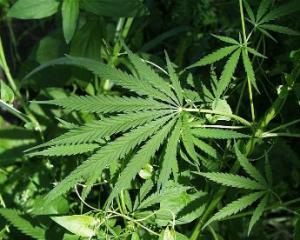A high-powered coalition of state and local elected officials, public figures, and attorneys filed a marijuana legalization initiative with Washington state officials June 22. Known as New Approach Washington, the group is aiming to put the measure before voters in the November 2012 elections.

Key features of the New Approach Washington initiative include:
- Distribution to adults 21 and over through state-licensed, marijuana-only stores; production and distribution licensed and regulated by Liquor Control Board (LCB).
- Severable provision (e.g. provision would stand if courts invalidated other provisions) decriminalizing adult possession of marijuana; possession by persons under 21 remains a misdemeanor.
- Stringent advertising, location, and license eligibility restrictions enforced by LCB.
- Home growing remains prohibited; except, initiative does not affect Washington's medical marijuana law.
- Estimated $215 million in new state revenue each year, with roughly $40 million going to state general fund (B&O and retail sales tax) and $175 million (new marijuana excise tax) earmarked for youth and health programs and marijuana education programs.
- THC blood concentration of 5 ng/mL or higher is per se Driving Under the Influence.
Among the backers of the initiative are Seattle City Attorney Pete Holmes, former US Attorney for the Western District of Washington (and prosecutor of Marc Emery, ironically) John McKay, travel program celebrity Rick Steves, state Rep. Mary Lou Dickerson (D-Seattle), and ACLU of Washington drug policy honcho Allison Holcomb, who is stepping down temporarily to run the campaign.
The group will have until December 30 to gather 241,153 valid voter signatures to put the issue before the legislature. The legislature could then approve the measure or send it to voters in the November 2012 election.
It's starting to look like marijuana legalization will be on the ballot in at least three, and possibly four, states next year. Efforts are already underway in California, Colorado, and Oregon.
This work by StoptheDrugWar.org is licensed under Creative Commons Attribution-ShareAlike 4.0 International
Comments
Hey it might turn out to be
Hey it might turn out to be better anyway that sensible washington did not get on the ballot. All states probably have a better chance if they know that other states are going for it as well. I think the fence people are more willing if they don't have to be the only ones that have legalized it in their state. But wow, they only have until december 30 of this year? That's not a lot of time.
Leaves a great deal to be desired
but if I-1149 doesn't make it to the ballot this could be the next best thing.
But
Isn't that 5 ng/mL blood THC level awfully low? I'd hate to see them pass a law that causes perfectly sober people to get a DUI because they smoked up the previous weekend. Is there any data on this? IMO this is the big roadblock in legalization. The authorities are rightfully going to insist on some method of measurement for impairment, but the cannibinoids hang in the system for so long it's a problem. Maybe they could just start enforcing it on anyone driving 10 mph or more under the speed limit?
In reply to But by Rod Flash (not verified)
Instead of a particular level of metabolites
or BAC, they should be doing impairment tests. Not everyone is impaired at .08 BAC, and the "problem" with cannabis metabolites being present in urine as much as 40 days after ingestion, proves the one-size-fits-all-set-level doesn't really work, it will catch up people who are not impaired and completely miss others who are impaired (because some are great drivers in spite of impairment and some just manage to avoid notice, of course this would also be true with impairment tests). Impairment tests will have the advantage of not putting unimpaired people through the costly DUI system, and it will also remove from the road those who are impaired for reasons other than illicit drug or alcohol use (I know alcohol is a drug I did that to diferentiate between the illegal drugs and the legal one), such as being too tired or having taken some OTC drug.
Marijuana legalization ballot initiatives
It's unfortunate that New Jersey's Constitution doesn't include "initiative and referendum" (I & R). Many western states have I & R. So, that's where the action will be in 2012.
-- Frank Fulbrook Camden, NJ
Add new comment